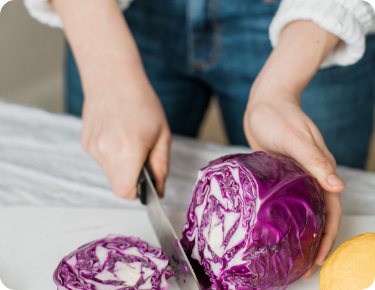Are you always affected by body aches? You’re not the only one. Pain that is experienced in the muscles, bones, tendons, and ligaments of the body, also known as musculoskeletal pain affects everyone. It can severely impede quality of life though when it’s chronic. Surprisingly, 10% of the world today has some form of chronic musculoskeletal pain.
Inflammation’s role in chronic pain
Often musculoskeletal disorders manifest through chronic pain and inflammation. One can also experience other symptoms such as decreased range of motion, weakness, and stiffness. Does this sound familiar at all?
What causes this inflammation? There can be many reasons that are the result of physical stressors - atypical stress, traumatic impact to the body, tendonitis, etc. In addition to these, a very common, and often overlooked reason for it is - the health of your GI tract (gastrointestinal tract).
Gut bacteria’s role in chronic pain
Your intestinal lining comprises gut bacteria, which make up the
gut microbiome of your body. Think of it as a blueprint of your health. Select types of gut bacteria have been linked to inflammatory diseases, depending on their environment. For example, macrophages cause chronic inflammation in reaction to distinct cytokines and microbial substances. They essentially become the
central effector cells of the disease.
Millions of years of coevolution have resulted in a symbiotic relationship between the gut microbiota and the host (i.e., the body – meaning, you!). They maintain the body's energy balance and continue to gain more recognition as a powerful part of the body. Your gut bacteria are essential because these symbiotic organisms aid in the maturity of the intestine’s immune system.
Take care of your gut bacteria
(so they’ll take care of you!)
It’s important to note that any imbalance in the gut microbiota can lead to chronic cases of inflammation. How can we cause this imbalance? - by eating processed foods, late-night meals, and consuming foods that lack nutrients. This practice throws off the balance of good bacteria and bad bacteria in the body. It leads to a complex dysfunction of the metabolic functions of the body. An essential byproduct of the functioning of these bacteria is metabolites and short-chain fatty acids or SCFAs, which play a key role in inflammation in the colon.
Inflammation plays a conflicting role in the human body. On one hand, it is the automatic defense mechanism of the body and helps in healing wounds and fighting off pathogens. On the other, the body’s response to inflammation may give rise to diseases like obesity, atherosclerosis, and even cancer. In cases of chronic inflammation, the lymphocytes, macrophages, and plasma cells inside the body tend to accumulate and infiltrate the junction tissue.
Specifically, the gut bacteria of genus Lachnospiraceae Ruminococcus and genus Anaerostipes are closely associated with both persistent or chronic musculoskeletal pain. And cause an increase in the number of locations affected by musculoskeletal pain in aged men. These two genera are associated with mucosa and therefore can produce serotonin and tryptamine from dietary tryptophan. (This means you can control them through a diet custom-made for your gut biome like the plans at Digbi. Find out how!)
These types of bacteria have an influential role in translocation associated with gut bacteria, systemic inflammation, and neuromodulation. Obesity is triggered by an imbalance in gut microbiota and is the leading cause of degenerative musculoskeletal disorders like arthritis. It’s a good thing that Digbi is on the front lines of this research with new ways to lose weight by harnessing the power of your gut bacteria.
Optimizing gut microbiota to manage pain
Many prevalent diseases are linked to chronic inflammation:
That’s why it’s necessary to be proactive in regulating inflammation to stop or reduce symptoms. Macrophages are one of the most critical effectors of inflammation.
The gut microbiota and its metabolites are accountable for managing the body’s inflammatory conditions. Bacterial products trigger macrophage activation, which in turn leads to inflammation of the joints in a localized or general manner. This inflammation leads to chronic pain. The microbiome is the prime therapeutic target for pain associated with the diseases of the musculoskeletal system.
Maintaining a healthy gut microbiota with the right diet and lifestyle will keep your microorganisms in balance and prevent disease-causing inflammation. Hence, targeting gut microbiota is essential for living a healthy life free of chronic pain. Get started on your planto ward off inflammation today.



